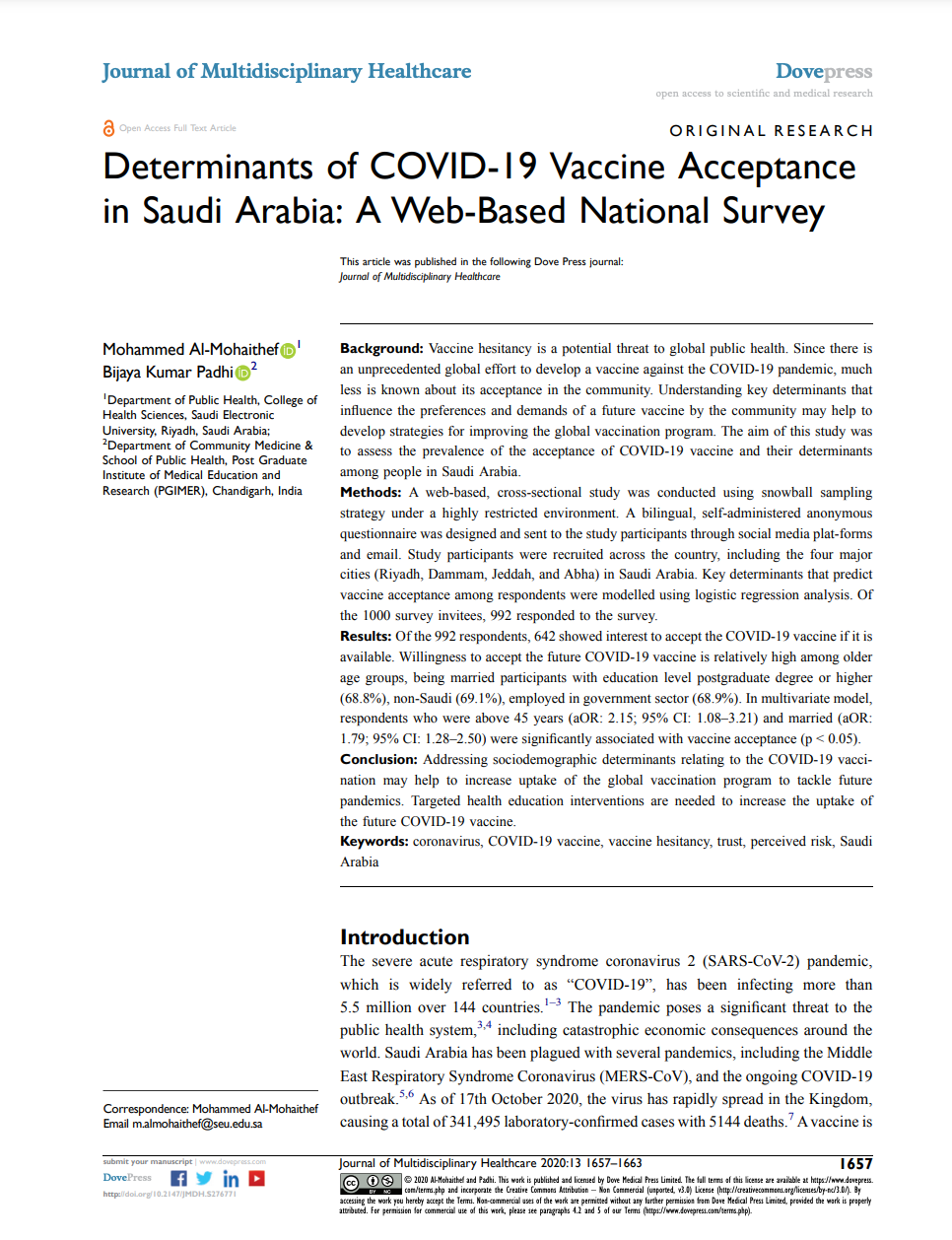Determinants of COVID-19 Vaccine Acceptance in Saudi Arabia: A Web-Based National Survey
Description
Vaccine hesitancy is a potential threat to global public health. Since there is an unprecedented global effort to develop a vaccine against the COVID-19 pandemic, much less is known about its acceptance in the community. Understanding key determinants that influence the preferences and demands of a future vaccine by the community may help to develop strategies for improving the global vaccination program. The aim of this study was to assess the prevalence of the acceptance of COVID-19 vaccine and its determinants among people in Saudi Arabia.
A web-based, cross-sectional study was conducted using snowball sampling strategy under a highly restricted environment. A bilingual, self-administered anonymous questionnaire was designed and sent to the study participants through social media plat-forms and email. Study participants were recruited across the country, including the four major cities (Riyadh, Dammam, Jeddah, and Abha) in Saudi Arabia. Key determinants that predict vaccine acceptance among respondents were modelled using logistic regression analysis. Of the 1000 survey invitees, 992 responded to the survey.
Of the 992 respondents, 642 showed interest to accept the COVID-19 vaccine if it is available. Willingness to accept the future COVID-19 vaccine is relatively high among older age groups, being married participants with education level postgraduate degree or higher (68.8%), non-Saudi (69.1%), employed in government sector (68.9%). In multivariate model, respondents who were above 45 years (aOR: 2.15; 95% CI: 1.08–3.21) and married (aOR: 1.79; 95% CI: 1.28–2.50) were significantly associated with vaccine acceptance (p < 0.05).
Addressing sociodemographic determinants relating to the COVID-19 vaccination may help to increase uptake of the global vaccination program to tackle future pandemics. Targeted health education interventions are needed to increase the uptake of the future COVID-19 vaccine.
Additional languages

DETAILS
Publication
Authors
Emergency
Scope
Language
Region
Keywords

